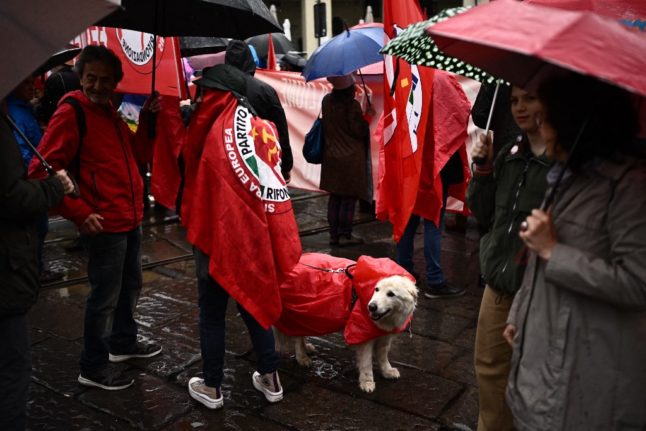Prime Minister Giorgia Meloni, who leads the country’s most far-right coalition since World War II, said the ‘citizens’ income’ benefit payment would be replaced by a more limited ‘inclusion cheque’ for qualifying households.
The government said the existing measure, that helped some four million people last year, costs too much, at around eight billion euros last year.
Ministers also claim benefits discourage able-bodied people, especially youths, from looking for jobs.
The new inclusion cheques, set to begin in January 2024, will cost around 5.4 billion euros annually, and be available only to households with minors, seniors 60 or older, or handicapped people.
Since taking office last September, Meloni has pushed corporate tax cuts while also promising to restore Italy’s economic credibility by cutting debt incurred most recently during the Covid-19 pandemic.
“We are reforming the citizens’ income to make a distinction between those who are able to work and those who aren’t,” Meloni said in a statement.
Her government also made it easier for companies to hire on short-term contracts – which unions blast as keeping employees in precarious economic situations – while promising tax breaks to firms hiring people benefiting from the new inclusion cheques.
The goal is to stimulate hiring and encourage more young people to find work in the eurozone’s third-largest economy, where the employment rate for 15-to-24-year olds, at 22.4 percent in February, is nearly three times above the national average (eight percent).
The citizens’ income programme was introduced by the populist Five Star Movement (M5S) in 2019, and its supporters say it has provided precious help to millions of low-income households, in particular in impoverished southern regions.
Italy’s INPS social security agency said the citizens’ revenue benefited four million people last year, with an average monthly subsidy of 550 euros.
The new inclusion cheques will be capped at 500 euros a month, though further aid will be offered for households with elderly or handicapped members, or those that do not own their homes.
“A serious government does not meet on May 1st to condemn young people to a life of precariousness, destroying their dream of having a home or children,” said former Five Star premier Giuseppe Conte.
Roberto Fico, a popular former speaker of the lower house of parliament, called Meloni’s move a “provocation”.
In a statement, Meloni defended “a strong signal and a privilege to honour workers on this day of celebration, bringing them the answers they are expecting”.
Thousands of May Day demonstrators turned out across the country, including Rome where some threw eggs at government buildings, as labour unions held their main joint rally in the southern city of Potenza.



 Please whitelist us to continue reading.
Please whitelist us to continue reading.
Member comments